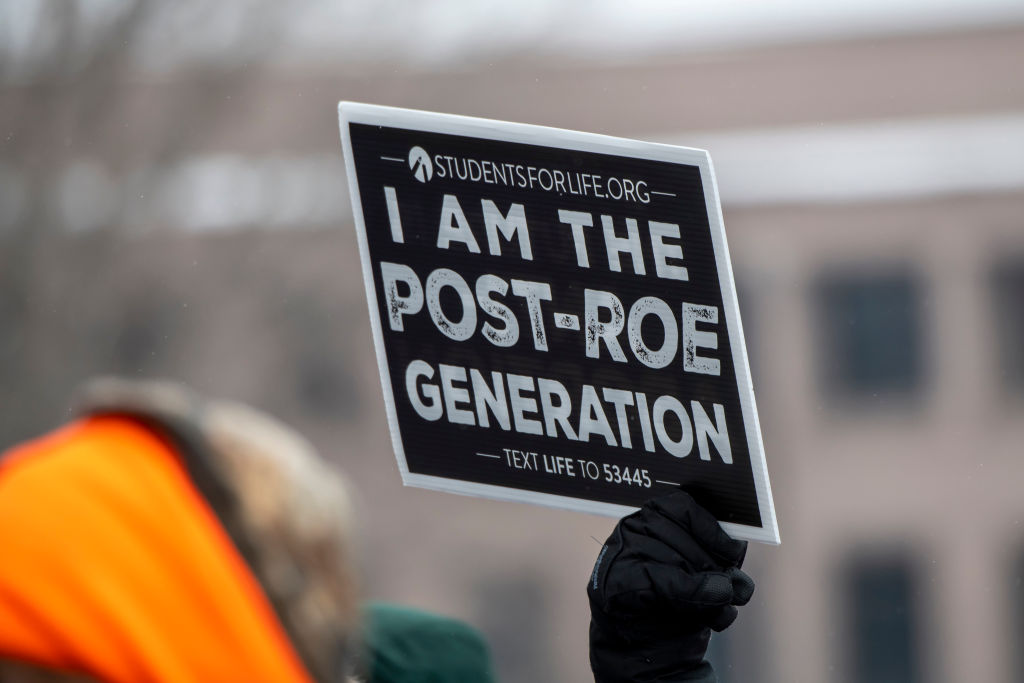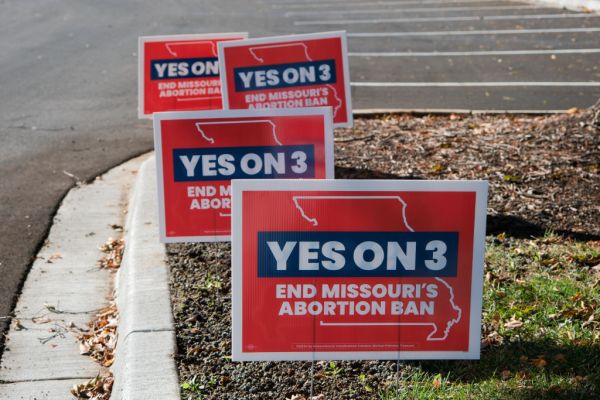By: Mary Trimble and Grayson Logue
Happy Wednesday!
Quick Hits: Today’s Top Stories
- Hurricane Idalia strengthened to a Category 4 storm early Wednesday morning, with sustained maximum winds reaching 130 miles per hour as it nears Florida’s Gulf Coast. The storm is expected to make landfall early this morning.
- Officials with Meta, the parent company of Facebook and Instagram, said Tuesday the company had disrupted a disinformation campaign run by accounts linked to Chinese law enforcement. The company described the effort—which lasted more than a year and saw secret users promote Beijing’s talking points and sow disinformation about Western governments—as the “largest known cross-platform covert influence operation in the world.”
- Terry Gou—the billionaire founder of Foxconn, a technology company that supplies Apple—announced Monday he is running in Taiwan’s presidential elections set for January. He joins two other opposition candidates running against the current vice president, the ruling Democratic Progressive Party’s William Lai. Gou blames the DPP for the rising tensions with China, which claims sovereignty over the island, and vows to unite the opposition behind him.
- The Biden administration announced Tuesday it would send an additional $250 million in military aid to Ukraine. The package—drawn down from current U.S. military stockpiles—will include AIM-9M air defense missiles, munitions for High Mobility Artillery Rocket System (HIMARS), 155mm and 105mm artillery ammunition, mine-clearing equipment, and Javelin weapons systems.
- Responding to a Freedom of Information Act request, the National Archives and Records Administration (NARA) confirmed Tuesday it is in possession of some 5,400 emails, documents, and other records from President Joe Biden’s time as vice president which include Biden’s various pseudonyms. The pseudonyms are relevant as part of a House Oversight Committee probe into whether Biden improperly shared information with his son Hunter.
- House Oversight Committee Chair James Comer announced Tuesday the committee will investigate the government response to the deadly Maui wildfires that destroyed the town of Lahaina earlier this month. “The response by federal, state, and local officials to the catastrophic wildfire in Maui raises serious questions, and Americans, especially those impacted by this tragedy, deserve answers,” Comer said Tuesday. House Speaker Kevin McCarthy is expected to visit Hawaii later this week.
- GOP Rep. Steve Scalise of Louisiana, the House majority leader, announced Tuesday he has been diagnosed with multiple myeloma, which he described as “a very treatable blood cancer.” Scalise intends to continue working as he receives treatment over the next several months.
- Two co-defendants of former President Donald Trump pleaded “not guilty” on Tuesday to charges related to efforts to overturn the results of the 2020 election in Georgia. Ray Smith, one of Trump’s 2020 campaign lawyers in Georgia and the first of the 19 total defendants to enter a plea, and Sidney Powell, another Trump campaign lawyer, submitted waivers of arraignment in writing, allowing them to skip the in-person arraignment set for September 6.
- Miami Mayor Francis Suarez Tuesday ended his campaign for president after he failed to qualify for the first GOP primary debate last week. He’s the first candidate to drop out of the race so far, but he did not endorse any of the other candidates running. “I look forward to keeping in touch with the other Republican presidential candidates and doing what I can to make sure our party puts forward a strong nominee who can inspire and unify the country,” he wrote.
GOP Looks for a Winning Abortion Message

In April, GOP presidential candidate Nikki Haley delivered a speech billed as a major policy address on abortion. Speaking at Susan B. Anthony Pro-Life America’s Virginia headquarters, Haley called for a “national consensus” on abortion but offered few policy details about what such a consensus would look like. At last week’s primary debate, however, she had a much more direct answer when she expressed strong skepticism about the feasibility of a federal abortion ban after 15 weeks of gestation.
“We haven’t had 45 pro-life senators in over 100 years, so no Republican president can ban abortion,” Haley said. “Let’s find consensus: Can’t we all agree that we should ban late-term abortions? Can’t we all agree that we should encourage adoptions? Can’t we all agree that doctors and nurses who don’t believe in abortion shouldn’t have to perform them? Can’t we all agree that contraception should be available? And can’t we all agree that we are not going to put a woman in jail or give her the death penalty if she gets an abortion?” The answer drew scattered applause from the crowd in Milwaukee, and some Republicans and pro-life advocates are heralding Haley’s stance as the party tries to find a winning message on abortion as Democrats prepare to capitalize on the issue next November.
“The only candidate on the stage that talked about how we should protect women and not demonize them was Nikki Haley,” Rep. Nancy Mace—a Republican of South Carolina—told CBS News Sunday. “That is a message that we have to carry through. We have to be pro-woman and pro-life.” Tudor Dixon—the failed Republican gubernatorial challenger to Michigan Gov. Gretchen Whitmer in 2022—described Haley’s answer as “the perfect response.” Dixon—like many Republicans in the immediate aftermath of the Dobbs decision—attempted to downplay the issue, but Democrats successfully leveraged abortion in the race alongside an amendment on the ballot to secure abortion rights in the state’s constitution. “We had $50 million in attack ads, abortion attack ads, spent against us in the state of Michigan,” Dixon said. “You cannot defeat that.”
In the 14 months since Dobbs, the GOP and the pro-life movement have witnessed a string of defeats at the state level—in Kansas, Kentucky, Michigan, Montana, and Ohio—and struggled to settle on a consistent message about federal action. As we wrote this spring:
The court’s landmark decision brought an end to that uneasy anti-Roe coalition, revealing the amalgamation for what it was: a group of fellow travelers whose interests aligned to a point, but who had their own, separate visions for what would replace the status quo. Was overturning Roe and returning the abortion issue to the states the end goal, as many Federalist Society types saw it? Was Alito’s Dobbs decision the first step toward a nationwide ban? Is there a middle ground that’s both morally acceptable to the pro-life movement and electorally popular?
The GOP primary debate highlighted the lack of consensus. Gov. Doug Burgum of North Dakota presented the federalist case for leaving the issue to the states. Former Vice President Mike Pence and Sen. Tim Scott made moral cases for a federal 15-week ban over and against Haley’s incrementalist approach. Former Arkansas Gov. Asa Hutchinson also voiced support for federal action. “Can’t we have a minimum standard in every state in the nation that says when a baby is capable of feeling pain, an abortion cannot be allowed,” said Pence. “Consensus is the opposite of leadership.”
Some pro-life advocates agree with Haley that debating a federal ban, at this point, is counterproductive. “The focus on a national bill shifts the spotlight away from the state initiatives and the state laws that are actual live issues right now,” says Patrick Brown, a senior fellow at the Ethics and Public Policy Center and pro-life and family policy advocate. “Saying ‘strike while the iron is hot’ [and] ‘we just got Roe overturned, let’s put the pedal to the metal’ actually makes it harder for us to pass bills and initiatives in some of these reddish-purple states because people are concerned about how far Republicans will go,” Brown tells TMD.
But other pro-lifers see a 15-week ban as the consensus position. “We have a war within the Republican Party to decide if we even are pro-life at the federal level,” Jon Schweppe, the policy director of the pro-family American Principles Project, tells TMD. “A 15-week [ban] seems to be a great compromise position, to where we can get folks who might not be as comfortable with a heartbeat bill, to at least support something established that we do believe that there’s a federal role on abortion.”
Some national pro-life groups praised the candidates standing for a 15-week national ban. “Mike Pence, Tim Scott, and Asa Hutchinson each offered a clear, bold case for national protections for the unborn at least by 15 weeks,” Marjorie Dannenfelser—president of SBA Pro-life America— said after the debate. “Those who offered the clearest contrast pointed out the Democrats’ agenda of imposing abortion on demand until birth in every state, nationwide. Going on offense is essential for any candidate who wants to win in 2024.” Virginia Gov. Glenn Youngkin is reportedly considering a 15-week ban as a consensus measure for his state should Republicans take control of the legislature in November.
Republicans will certainly need a better message on abortion than what the party had in 2022. “If our candidates aren’t able to fend a response and put out a response, we’re not going to win,” Republican National Committee Chair Ronna McDaniel told Fox News last week. Schweppe believes getting behind a 15-week ban is key for Republicans to be able to credibly refute Democratic attacks. “A lot of these folks in Kansas or elsewhere who have voted for abortion on these referenda, these are not necessarily people who would disagree with us on 15-week,” Schweppe tells TMD. “These are people who are hearing the messaging from the left that we want 12-year-old rape victims to carry the baby of their rapist or we want women to die on the operating table or we want to punish women for abortion and to put them in jail. Those arguments work on a lot of people.”
“We still don’t have a coherent national message responding to that yet and voters sense that. They’re going to naturally be [like] ‘why are these guys trying to pivot off of abortion to talk about inflation? Maybe the Democrats are right, maybe this is what they really support,’” he adds. By giving voters a concrete commitment, he advises Republicans, “you have the freedom to attack Democrats for their radical position of abortion till the moment of birth.”
Republicans would love to be able to flip the script on Democrats’ positions on late-term abortions in particular. Last week, former White House press secretary and current MSNBC host Jen Psaki faced a barrage of criticism from the right for claiming, “No one supports abortion up until birth.” Critics pointed out that seven states have no gestational limits on abortion. Psaki tried to shore up her argument this weekend—tweaking her original statement to argue late-term abortions are rare. But she exposed Democrats’ vulnerability on the point. As National Review’s John McCormack reports, Psaki’s claim that late-term abortions are “almost always” a decision to save the life of the mother or because the baby couldn’t survive outside the womb is not true—a majority of such abortions involve both physically healthy babies and mothers.
The parties won’t have to wait until next year for another abortion showdown. An open seat on Pennsylvania’s Supreme Court will be filled this November, and Democratic PACs and abortion rights groups are preparing to make abortion the center of the contest. Who comes out on top could provide yet another preview of what’s to come in 2024.
Worth Your Time
- Ahmad Jawed started working as an interpreter for the U.S. military in Afghanistan when he was 15 years old. Now, still waiting on a visa to come to the U.S. and unable to leave Afghanistan, Jawed lives in fear of being killed by the Taliban. “After the fall of Kabul in August 2021, the U.S. evacuated tens of thousands of Afghans who had worked with the U.S.,” Sune Engel Rasmussen writes for the Wall Street Journal. “Jawed, an interpreter for four years, wasn’t one of them. He is one of nearly 150,000 people awaiting a decision on their application for a special visa intended to provide an escape for Afghan allies left behind. Government surveillance cameras were recently installed near Jawed’s apartment building. In March, from his living-room window, he watched two Taliban men walking around the yard of his apartment building, questioning residents. A watchman later told Jawed they were asking for him. No one gave him up. Jawed’s friend Gul, the taxi driver, keeps track of where the Taliban set up checkpoints and whether officers are checking only for weapons or whether they are conducting more intrusive searches, including identification checks. When Jawed needs to get around town, they often take detours to avoid getting stopped. Despite the danger and the isolation of his life, he doesn’t regret working with the Americans. “‘I always thought they were my friends,” he said. ‘I am sure one day they will help me.’”
Presented Without Comment
Axios: NYT Unions File Cease-and-Desist Letters to Management Over Return-to-Office Policies
Also Presented Without Comment
Rolling Stone: Vivek Ramaswamy Agrees to Stop Rapping to Eminem on the Campaign Trail
Toeing the Company Line
- Is a March 4, 2024 trial good or bad for Trump? Does Prigozhin’s death spell the end of Wagner? How effective is “Operation Lonestar”? Declan was joined by Mike, Audrey, Mary, and Harvest to discuss all that and more on last night’s Dispatch Live (🔒). Members who missed the conversation can catch a rerun—either video or audio-only—by clicking here.
- In the newsletters: Nick explains (🔒) why Trump’s pre-Super Tuesday D.C. trial date is bad for him, actually.
- On the podcasts: Psychologist Dr. Jean Twenge joins Jonah on The Remnant to discuss generational differences and the effect of technology on Generation Z.
- On the site today: Kevin examines how the Jacksonville shooter was able to buy his guns legally, Jonah digs into China’s downward economic spiral, and Arthur Herman explains why Biden’s Chinese investment ban is ineffective.
Let Us Know
Where do you think the GOP settles on the abortion issue in the next few years? Is it possible for a party made up of so many different coalitions to coalesce around a consistent approach to these questions?









Please note that we at The Dispatch hold ourselves, our work, and our commenters to a higher standard than other places on the internet. We welcome comments that foster genuine debate or discussion—including comments critical of us or our work—but responses that include ad hominem attacks on fellow Dispatch members or are intended to stoke fear and anger may be moderated.
You are currently using a limited time guest pass and do not have access to commenting. Consider subscribing to join the conversation.
With your membership, you only have the ability to comment on The Morning Dispatch articles. Consider upgrading to join the conversation everywhere.